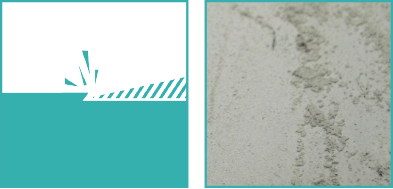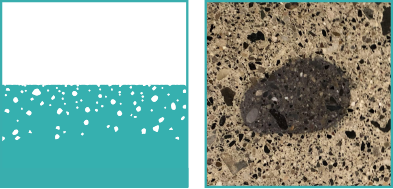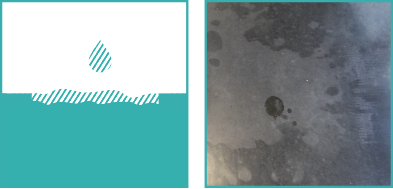The Science of Concrete
Understanding Your Concrete Floors
Concrete is strong, but not invincible. Concrete floors are strong, functional, and long-wearing. However, they are not bullet proof. But knowledge is power. With a proper understanding of how concrete reacts and responds under certain conditions, you can keep your floors in excellent condition for many years – avoiding costly mistakes, and saving you and your business valuable time, money and resources. You’ll quickly realize that concrete is as tough as you think it is, but there are a few things to be mindful of.
.
Erosion + Wear
Non-densified concrete floors are subject to wear and tear. The friction caused by dirt, debris, foot and vehicle traffic all contribute to degrading your floor, leaving it vulnerable to abrasion, dinginess, etching, staining, scratching and chipping.
.

.
Porous
Concrete has a pore structure that is a magnet for solubilized dirt and soil. This causes your floor to have a dull appearance, eliminating the attractive sheen and light reflectivity it once had. These pores are also channels for oil and other liquids to infiltrate into the interior of the slab, causing discoloration and staining.
.

.
Reactive
All concrete floors, whether densified or non-densified, are naturally sensitive to acid. While concrete densification closes the majority of the pores in concrete, minimizing acid penetration, the concrete is still sensitive to acid etching and staining.
.

.
.


